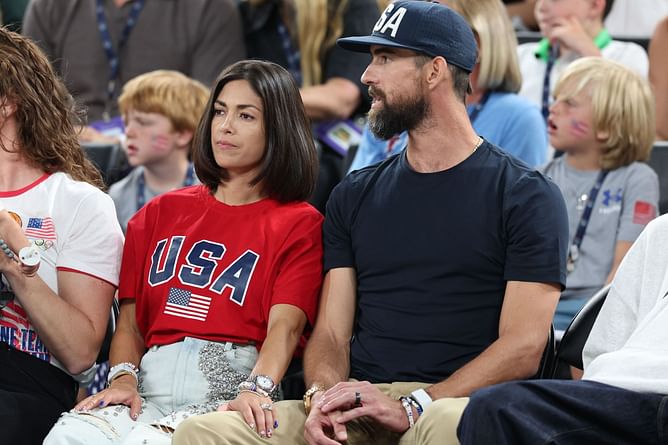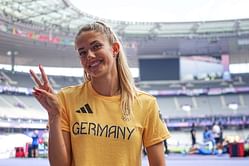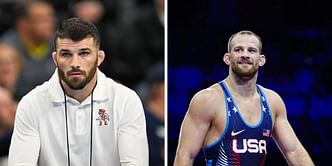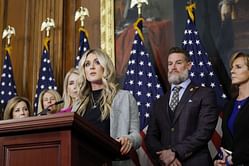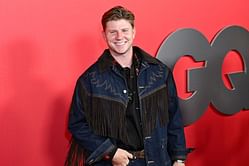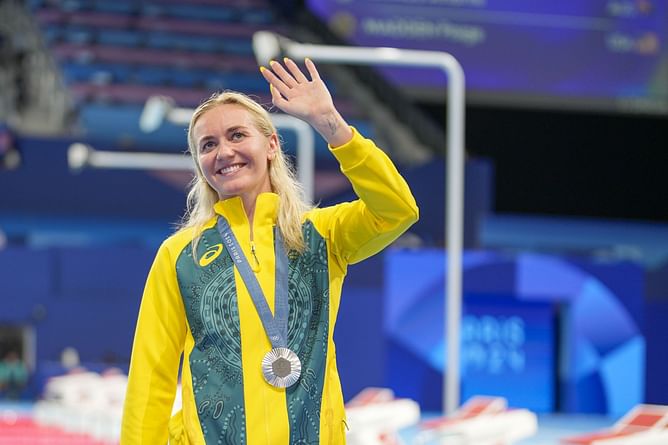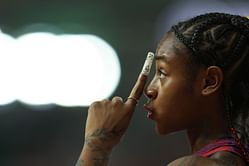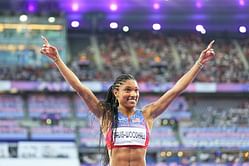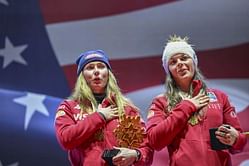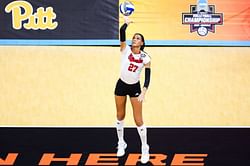Olympics
About Olympics
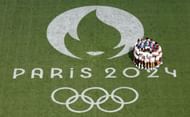
The Olympic Games are an international sporting event, featuring athletic abilities from all the nations in the world. Starting from ancient Greece, the Olympics have changed into a worldwide occurrence that encourages unity, fair play, and competition on a large scale. The US Olympic team represents the United States at the Summer and Winter Olympic Games while taking part in numerous types of sports globally.
US Olympic, governed by the United States Olympic & Paralympic Committee (USOPC), the US Olympic team comprises elite athletes who have excelled in their respective sports. The US Olympic team is competing at the 2024 Summer Olympics in Paris from July 26 to August 11, 2024.
US Olympic Overview
The US Olympics, established in 1894 and headquartered in Colorado Springs, Colorado, the United States Olympic & Paralympic Committee (USOPC) functions as both the National Olympic Committee (NOC) and the National Paralympic Committee (NPC) for the United States.
The USOPC is dedicated to supporting elite athletes by providing essential resources and opportunities that enable them to reach their full potential and compete at the highest level on a global scale. Through strategic partnerships with national governing bodies and various sports organizations, the USOPC is committed to maximizing American athletes' chances of success at the Olympic Games.
US Olympic Selection Process
The Olympic selection process varies depending on the sport and the country. Each National Olympic Committee (NOC) has its own set of criteria for selecting athletes to represent them at the Olympic Games. In some sports, athletes must achieve a certain qualifying standard or ranking to be considered for selection. In others, they may have to compete in a series of trials or competitions to earn their spot on the Olympic team.
To identify the most qualified athletes to represent the United States at the Olympic Games, individuals must meet specific criteria and standards established by their respective National Governing Bodies (NGBs). Only those who fulfill these requirements will be considered for a place on the Olympic team.
National Olympic Committees, including the US Olympic & Paralympic Committee (USOPC), receive national quota spots to compete in international multi-sport events. These quota spots are subsequently allocated to individual athletes and teams based on distinct selection criteria pertinent to each sport. International federations are responsible for justifying athlete selection for each sport with oversight from national federations or NGBs like in America. Moreover, a paralympic classification system was established to manage games played by athletes including those with physical disabilities along with people who have mental disorders or do not see at all.
Athletes selected for representation are often directed to Olympic & Paralympic Training Centers. To streamline this selection process, each NGB submits an annual high-performance plan to the USOPC that outlines training objectives over a four-year cycle leading up to the Games. Furthermore, the USOPC offers access to an athlete ombudsman who provides confidential guidance regarding matters related to elite sports participation, such as team selection processes and assists in resolving any disputes associated with qualification and selection procedures.
US Olympic Sports List
Here is the list of US Olympic Sports list of all editions:
| Sport | Events |
| Acrobatic Gymnastics | Individual, Pairs, Groups |
| Alpine Skiing | Downhill, Slalom, Giant Slalom, Super-G, Combined |
| Archery | Individual, Team |
| Artistic Gymnastics | Women’s Artistic Gymnastics, Men’s Artistic Gymnastics |
| Artistic Swimming | Duet, Team |
| Athletics | Track and Field, Marathon, Race Walking |
| Badminton | Singles, Doubles |
| Baseball 5 | Individual |
| Baseball/Softball | Baseball (Men), Softball (Women) |
| Basketball | Basketball, 3x3 Basketball |
| Beach Handball | Men’s and Women’s Tournaments |
| Beach Volleyball | Men’s and Women’s Tournaments |
| Biathlon | Sprint, Pursuit, Individual, Relay |
| Bobsleigh | Two-Man, Four-Man, Monobob |
| Boxing | Various Weight Classes |
| Breaking | Individual, Crew |
| Canoe Slalom | K1, C1, C2 |
| Canoe Sprint | K1, K2, K4, C1, C2 |
| Coastal Rowing | Various Boat Classes |
| Cricket | Men’s and Women’s Tournaments |
| Cross-Country Skiing | Sprint, Pursuit, Individual, Relay |
| Curling | Men’s, Women’s, Mixed Doubles |
| Cycling BMX Freestyle | Individual |
| Cycling BMX Racing | Individual |
| Cycling Mountain Bike | Cross-Country |
| Cycling Road | Road Race, Time Trial |
| Cycling Track | Sprint, Keirin, Omnium, Madison, Points Race, Individual Pursuit, Team Pursuit |
| Diving | Springboard, Platform |
| Equestrian | Dressage, Show Jumping, Eventing |
| Fencing | Foil, Epee, Sabre |
| Figure Skating | Singles, Pairs, Ice Dance |
| Flag Football | Individual |
| Football | Men’s and Women’s Tournaments |
| Freestyle Skiing | Mogul, Aerials, Cross-Country, Half-Pipe, Slopestyle |
| Futsal | Indoor Football |
| Golf | Individual, Team |
| Handball | Men’s and Women’s Tournaments |
| Hockey | Field Hockey |
| Ice Hockey | Men’s and Women’s Tournaments |
| Judo | Various Weight Classes |
| Karate | Kata, Kumite |
| Lacrosse | Men’s and Women’s Tournaments |
| Luge | Singles, Doubles, Relay |
| Marathon Swimming | 10km Open Water |
| Modern Pentathlon | Fencing, Swimming, Equestrian Show Jumping, Running |
| Nordic Combined | Ski Jumping, Cross-Country Skiing |
| Rhythmic Gymnastics | Individual, Group |
| Roller Speed Skating | Individual, Relay |
| Rowing | Various Boat Classes |
| Rugby Sevens | Rugby (Men’s and Women’s) |
| Sailing | Various Classes |
| Shooting | Rifle, Pistol, Shotgun |
| Short Track Speed Skating | Individual Races, Relay |
| Skateboarding | Street, Park |
| Skeleton | Singles |
| Ski Jumping | Individual, Team |
| Ski Mountaineering | Individual, Team |
| Snowboarding | Half-Pipe, Slopestyle, Parallel Giant Slalom |
| Speed Skating | Individual, Team Pursuit |
| Sport Climbing | Lead, Bouldering, Combined |
| Squash | Individual, Team |
| Surfing | Shortboard |
| Swimming | Freestyle, Backstroke, Breaststroke, Butterfly, Medley |
| Table Tennis | Singles, Doubles |
| Taekwondo | Various Weight Classes |
| Tennis | Singles, Doubles, Mixed Doubles |
| Trampoline | Individual, Synchronised |
| Triathlon | Individual, Mixed Relay |
| Volleyball | Indoor, Beach |
| Water Polo | Men’s and Women’s Tournaments |
| Weightlifting | Various Weight Classes |
| Wrestling | Freestyle, Greco-Roman |
| Wushu | Taolu, Sanda |
How many Olympic medals does the US have?
The United States has a total of 2,968 Olympic medals as of 29th July 2024. American athletes have won a total of 2,638 medals, with 1,065 being gold, 835 silver, and 738 bronze, at the Summer Olympic Games. They have also won another 330 medals, with 114 being gold, 121 silver, and 95 bronze, at the Winter Olympic Games. This makes the United States the most prolific medal-winning nation in the history of the Olympics.
How Are Sports Chosen for the Olympics?
Choosing sports for the Olympic Games is a process with distinct phases; step one towards an Olympic game involves attaining this status from the IOC as a sport. To be classified as a recognized sport by the IOC the activity must be managed by an international non-governmental organization that governs at least one sport. After being acknowledged as such it subsequently attains International Federation (IF) status.
To be a member of the Games, the International Federation (IF) of this sport applies for admission by submitting a request that delineates its qualification criteria to the International Olympic Committee (IOC). The IOC might accept an activity in the Olympic Program in one of three ways: as a sport; or as a discipline – a branch of a sport; or as competitions within disciplines.
When choosing sports to include in the program, the IOC must take into consideration media and public interest since these are key drivers behind the Olympic Games. However, the IOC simultaneously manages costs and ensures that the program is diverse and inclusive. This selection process ensures that only the deserving sports make it to the prestigious Olympic stage.
FAQ's On US Olympic
A. The USOPC oversees the participation of U.S. athletes in the Olympic and Paralympic Games, manages the development of athletes, and promotes the Olympic and Paralympic movements in the U.S.
A. The United States first participated in the modern Olympic Games in 1896, which was the inaugural edition of the modern Olympics held in Athens, Greece.
A. The first U.S. city to host the Olympics was St. Louis, Missouri. It hosted the 1904 Summer Olympics.
A. The U.S. Olympic Trials are held every four years, preceding the Summer and Winter Olympic Games, to determine the athletes who will represent the United States.
A. The USOPC is funded through a combination of private donations, corporate sponsorships, and revenue from the sale of broadcasting rights and merchandise.
